detail profile reba devi

Riwayat Hidup
Reba Devi was born on 11 February 1911 in Dacca, Bengal Presidency, British India [now in Dhaka, Bangladesh].
She was an actress, known for Pather Panchali (1955), Suktara (1940), and Kavi (1949).
She died on 14 November 1988.
Info Pribadi
Peran Yang Di Mainkan Reba Devi
 Aparna the only daughter and the...
Aparna the only daughter and the...Aparna 1972
Aparna, the only daughter and the apple of her mother's eye is engaged at a young age to her childhood friend, Ajay. After her mother’s death, her father remarries, and her stepmother begins to mistreat her. Desperate, Aparna flees with the help of Baren, a local goon with a good heart. She stays with Baren for safety and becomes involved in his group, though she urges him to turn his life around. Baren vows to protect her. One day, Aparna meets a stranger who turns out to be Ajay, and they are reunited. Baren is eventually arrested for his crimes but ensures Aparna's safety.
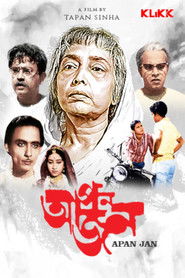 Set against the backdrop of the...
Set against the backdrop of the...Apanjan 1968
Set against the backdrop of the political violence that rocked India, and West Bengal in particular, in the late 1960s, it tells the story of an aged widow in a village who goes to Calcutta to stay with relatives, but faces only exploitation. She moves to a slum, and finds her "own people" in a group of educated, unemployed youth, who are caught up inexorably in the prevalent violence.
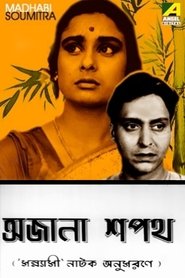 Its a story based on friendship...
Its a story based on friendship...Ajana Shapath 1967
It's a story based on friendship and love. In this movie, there are three friends Satya, Shankar, and Manimohan. Satya is in love with a girl named Srimoti. After a few years, Srimoti gets pregnant. Satya shoots himself after an argument with her. Manimohan reaches the spot and takes Srimoti away to a distant place and settles down with her. Shankar thinks that Manimohan killed Satya. But the police arrested Shankar for the crime. Srimoti gives birth to a girl named Niyoti. After Shankar is released from jail, he learns about Manimohan's whereabouts. He goes there to take revenge. But after he finds out the truth, he forgives them. (Source: Angel Digital)
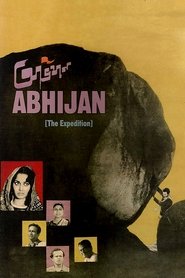 The story revolves around a North...
The story revolves around a North...The Expedition 1962
The story revolves around a North Indian taxi driver, Narsingh, who attempts to reinvent his life by visiting his native place, but instead gets embroiled in a local Marwari businessman's smuggling and human trafficking business. Preserved by the Academy Film Archive in 2001.
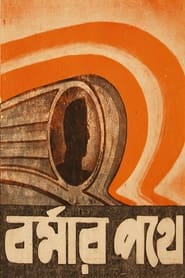 The rustic girl left this world...
The rustic girl left this world...Burmar Pathe 1947
The rustic girl left this world and went to heaven. Her Painful memories are what remains behind. The injustice exploitation is suffocating. These conflicts within the unfortunate soil of India have taken many lives. There’s cruelty amongst mankind. There’s injustice and exploitation everywhere. People struggle for their rights. There’s a storm raging in every heart and soul. The earth shivers and wreaks havoc. The raging waves clash on the shores. This enlightens the soul. We can hear the song of a great soul at a distance. It calls out. It calls out to us, to break free from the shackles. We can hear his call. Come Forward. Break free from the shackles. Fight back for freedom. Set yourself free. We’ve sacrificed our lives for the freedom of new India.
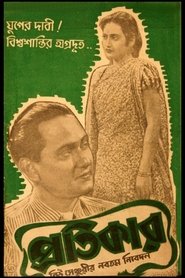 Sri Beniprasad owner of Model Drugs...
Sri Beniprasad owner of Model Drugs...Pratikar 1944
Sri Beniprasad, owner of "Model Drugs," discovers his workers’ grievances when he finds a bulletin circulated by them. Though his son Dilip is involved with the company, he advises his father to investigate independently. Taking on a disguise as a common laborer, Beni Prasad learns that his executives are dishonest and oppressive, even mistreating him. He is welcomed by Rammoy, a worker, and his family, where Jayanta, an enigmatic leader of the labor movement, regularly appears. During a secret meeting, Jayanta realizes Beni Prasad is undercover and orders his glasses broken, rendering him unable to see. Both Beni Prasad and Rammoy's daughter Reba question Jayanta’s true identity, which is revealed in a twist at the film's end.
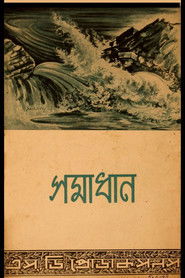 A workingclass leader confronts a villainous...
A workingclass leader confronts a villainous...Samadhan 1943
A working-class leader confronts a villainous factory owner, falls in love with the boss's daughter unaware of her family origins and, after many adventures and setbacks, it is revealed that the hero is in fact the official heir to the property the villain had usurped. An influential Bengali novelist acknowledging allegiance to socialism, Mitra's studio-bound film concentrates on showing the milieu of the rich while the dialogues make numerous references to the workers and the poor.
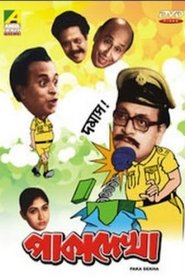 Aparnas father a police officer fixes...
Aparnas father a police officer fixes... Pratima is a 1977 Indian Bengali family...
Pratima is a 1977 Indian Bengali family... A depiction of the life of...
A depiction of the life of...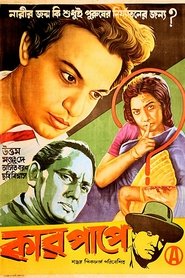 A womanizer Asit Baran conceals his...
A womanizer Asit Baran conceals his...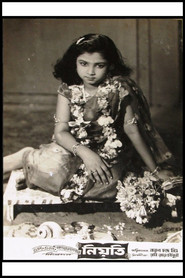 A 1951 Bengali Thriller Film directed by...
A 1951 Bengali Thriller Film directed by...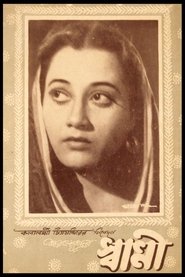 A 1949 Indian Bengali Film directed by...
A 1949 Indian Bengali Film directed by...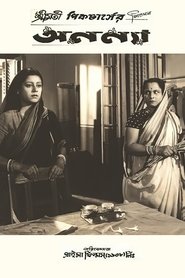 A Bengali Drama Film directed by...
A Bengali Drama Film directed by...